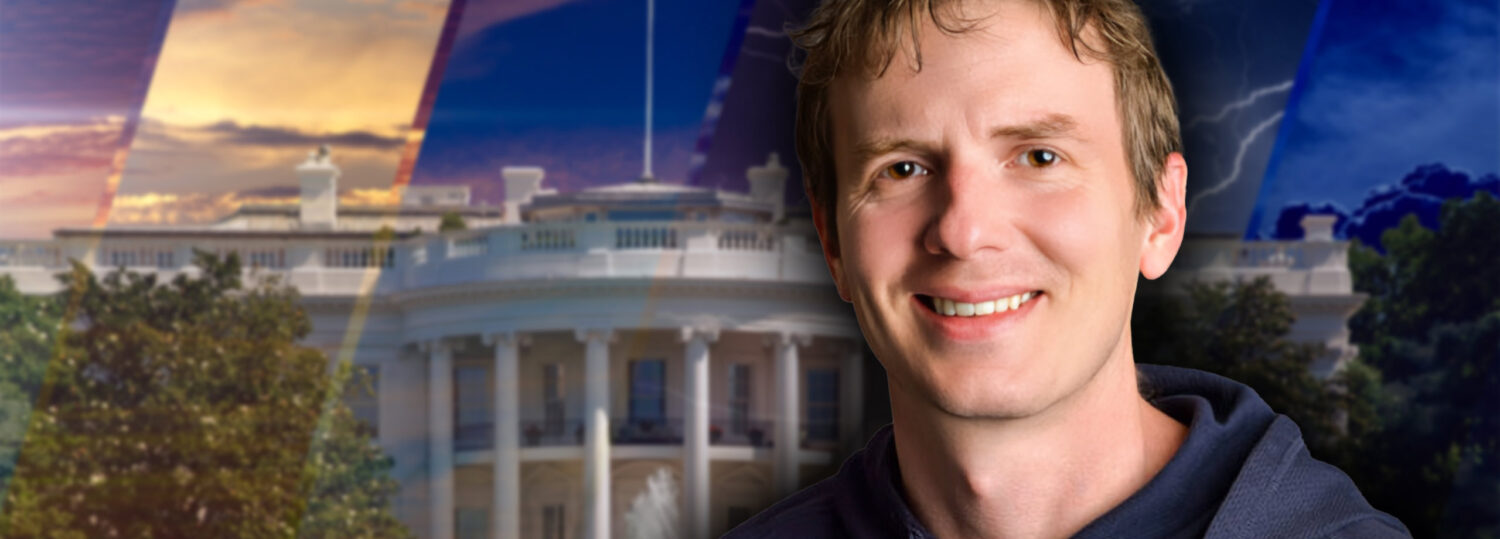Jordan Kern, ISE assistant professor and researcher funded by the U.S. Department of Energy’s (DOE) Office of Science, was invited to participate in a virtual roundtable hosted by the White House Office of Science and Technology Policy (OSTP) and the U.S. Department of Energy. The roundtable aims to discuss the potential of Artificial Intelligence (AI) in bolstering the nation’s resilience against climate change impacts and fostering an equitable clean energy economy.
Kern’s involvement in this discussion stems from his years of research on the vulnerability of power grids in the U.S. to extreme weather and climate change. Regarding his participation, Kern stated, “Over the past several years, I have been funded by the U.S. Department of Energy’s Office of Science on a project exploring the vulnerability of power grids in the U.S. to extreme weather and climate change. Based on this work, leadership at the DOE asked that I participate in the discussion.”
One of the focal points of the discussion will be President Biden’s Executive Order on the Safe, Secure, and Trustworthy Development and Use of Artificial Intelligence. Kern emphasized the potential of Large Language Models (LLMs) and Generative AI as tools to improve the efficiency of business and governmental processes. However, he acknowledged the risks, stating, “While AI holds great potential, it may also increase risks of adverse outcomes by masking discriminatory effects, amplifying existing biases, creating challenges for ensuring data and scientific integrity, or creating unanticipated risks to data privacy.”
During the roundtable, Kern and other experts explored promising use cases of machine learning in the power grid domain. Examples included improved short-term forecasts of electricity load, wind, and solar, enabling more efficient scheduling of electricity production, and enhanced forecasts of impacts from extreme weather, aiding utilities in allocating resources effectively during recovery efforts.
Addressing the challenges discussed in the session, Kern highlighted issues such as data gaps, workforce training, and trust concerns that hinder utilities from adopting more sophisticated analytical tools.
As for the next steps, Kern mentioned that the White House OSTP will publish a report summarizing the key points of the discussion and providing official recommendations.
Policy Bootcamp
After surviving the competitive application process against his fellow early career researchers, Kern will participate in the Mason-Maryland Climate and Technology Policy Bootcamp. Funded by the Alfred P. Sloan Foundation, the boot camp trains researchers to engage with decision-makers in the energy and climate-tech policy landscape. “At least part of this training will involve learning how energy and climate-tech policy is made so that the research community can have a greater impact on real-world clean energy and climate innovation outcomes,” shared Kern.
The boot camp, scheduled for early June, promises face-to-face discussions with key players shaping energy and climate-tech policy in the United States, including members of Congress, the executive branch, international organizations, NGOs, and the private sector.

